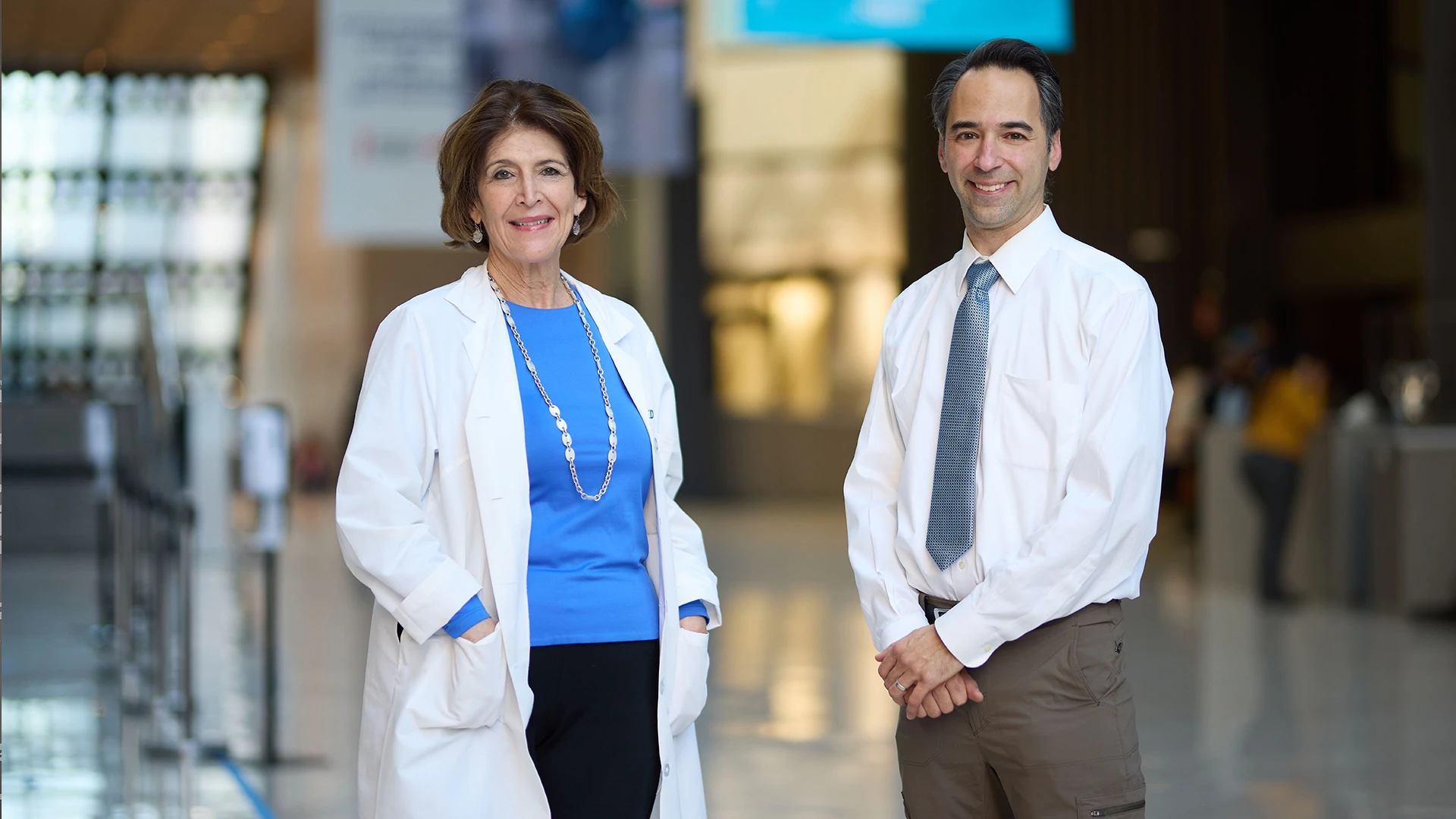The merger of Endocrinology fellowships at Mount Sinai into a system-wide program has created not only the largest training effort of its type in the country, but one offering participants an unmatched diversity of clinical and research opportunities across four large hospitals with distinct patient populations, says Alice Levine, MD, Professor of Medicine (Endocrinology, Diabetes and Bone Disease) at the Icahn School of Medicine at Mount Sinai, and co-director of the Mount Sinai Health System Endocrinology Fellowship.
The expanded fellowship, which features a two-year master clinician track and a three-year physician-scientist track, recently selected its first class of seven fellows, who will begin their training on July 1, 2022.
“It’s not just the idea of being bigger, but being better,” Dr. Levine says. “Whether they select the clinical or research track, fellows will get exposure to New York City’s broad range of patients, cultures, and endocrine and metabolic conditions. In addition, they can draw on the knowledge and experience of our 65-member faculty, which includes leading experts in their specialty fields.”
The clinical experience during first year of training will essentially be the same for both master clinicians and physician-scientists. They will divide their time between inpatient clinics and outpatient subspecialty rotations under the guidance of master clinicians (including adrenal, pediatric, reproductive, pituitary, thyroid, transgender medicine, osteoporosis, obesity/weight management and diabetes) at four flagship medical centers in Manhattan, as well as the James J. Peters Veterans Affairs Hospital in the Bronx.
“Whether they select the clinical or research track, fellows will get exposure to New York City’s broad range of patients, cultures, and endocrine and metabolic conditions.”
- Alice Levine, MD

Alice Levine, MD, and Michael Via, MD, are co-directors of the Endocrinology Fellowship Program.
With a shift to outpatient subspecialty clinical work, and with significant time devoted to scholarly activity, the second year will diverge most noticeably from the previous format. Fellows on the Master Clinician track will spend approximately half their time performing outpatient service in a specialty or subspecialty clinic, and the remainder delving deeply into a particular area of endocrinology (possibly through a research or quality improvement project) under the mentorship of a master clinician.
Second-year physician-scientists will follow somewhat different ground rules. Three-quarters of their training will be mentored research time, the rest committed to subspecialty clinics. That weighted formula will carry over to the third year of the physician-scientist track, when fellows will be guaranteed philanthropic funding for their research activities that extend into a third year of training—another unique feature of the expanded program, Dr. Levine says.
“Third-year fellows will have decided to dedicate the majority of their careers to scientific research in the field of endocrinology,” notes Michael Via, MD, Associate Professor of Medicine (Endocrinology, Diabetes and Bone Disease), and co-director of the Endocrinology Fellowship. “We want to give them the tools and resources they need to succeed at the highest levels of scientific research, whether that be through clinical or translational-bench work.”
Among the resources endocrine fellows can tap into during their Mount Sinai training are world-class clinical and research centers for diabetes, adrenal gland disorders, pituitary disorders, thyroid and parathyroid diseases, polycystic ovary syndrome, and transgender medicine. “The breadth and depth of our fellowship program is what truly sets it apart from others,” emphasizes Dr. Levine, who leads the Endocrinology Division’s adrenal and pituitary centers. “The fact all these components have been merged under a single academic umbrella is already injecting tremendous excitement and energy among our faculty and leadership, as well as among fellows who are currently training.”
The expanded fellowship, which features a two-year master clinician track and a three-year physician-scientist track, has selected its first class of seven fellows, who will begin their training in July 2022.